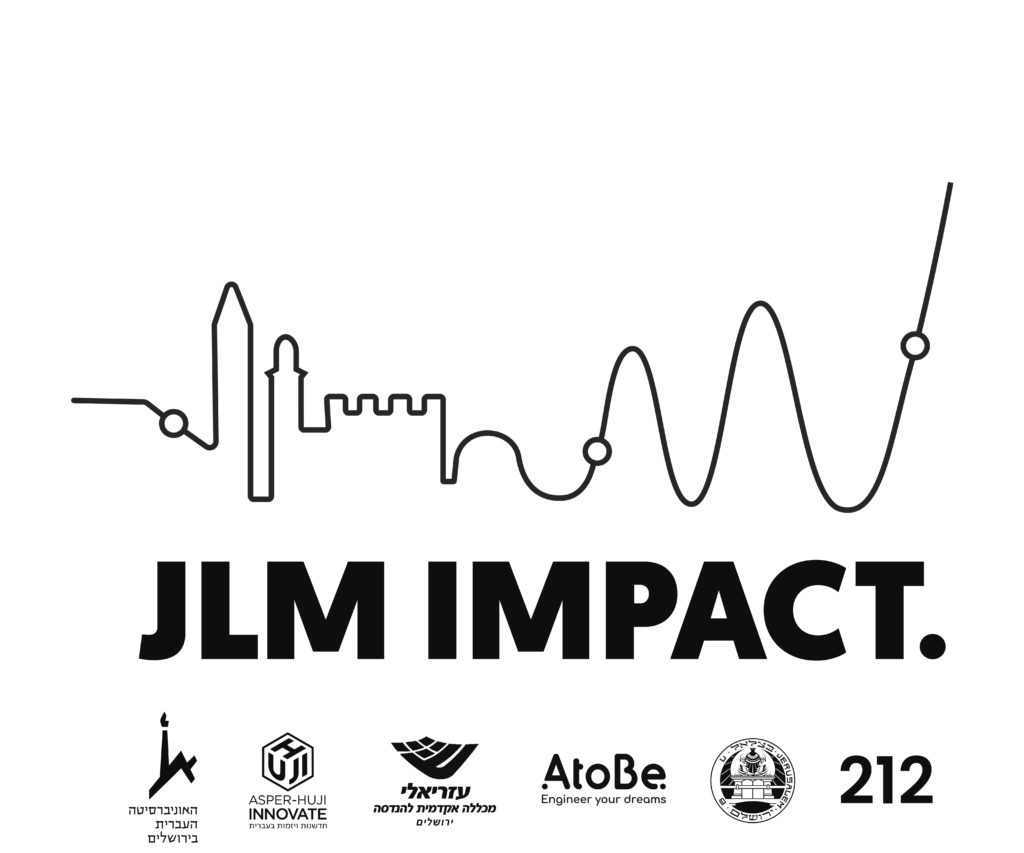An Online Academic Course
About the Course
An online, asynchronous course designed for an interdisciplinary academic environment.
Previous knowledge and/or experience in design is not required in this course.
Bachelor students from the Hebrew University, Bezalel Academy of Art and Design and Azrieli College of Engineering will co-learn core design methodologies that can be implemented in product and venture creation processes.
The learning process in the course is built in a structure that brings together theory and real world practice.
Participants will enjoy an interactive, “hands-on” practice of design research tools, step into the designer’s shoes and use their unique attitude to problem solving, human-needs-centered-design and product oriented design.
The aim: Explore new ideas and discover meaningful needs and opportunities.
This course follows the first course in the series – “Intro to Innovation and Entrepreneurship”. Note: completing the ladder is not a prerequisite. It dives into key elements in the innovation process and expands the perspective on the design tools available.
This course will benefit the entrepreneur but also any other professional practice.
Course details
Attendance
The course is digital and asynchronous, with content being updated on a weekly basis. Therefore, there will be no roll call and there is no attendance requirement.
Language
The course will be taught in English with subtitles in Hebrew and Arabic, in order to empower participants to understand and use the language most frequently used in the world of innovation. The course is admissible as an elective course taught in English, subject to the approval of your academic institution and faculty.
Assignments
All course assignments will be completed online: asynchronous digital tasks, forums, exams and the final assignment presentation. The main course assignments are based on 3 site visits in which the students collect and analyze information while meeting users and interacting with real life environments.
Participation
While there is no attendance requirement, course participants must complete all teaching units, hand in all assignments on time and participate in conversation groups to complete the course.
Course Objectives
Broaden the student’s perception on what “a product” is (artifact, process, service, interaction, experience, workflow) and exercise the ability to identify a product’s territory.
Introduce the students to design thinking theories from a critical point of view, and encourage them to adapt and reform the diagrams to their personal perspective and practice.
Introduce the students to hands-on design research methodologies, product specs and visual thinking – useful skills for innovation processes.
Familiarize the students with the industrial design process, expose students to the designer’s mindset and highlight the relevance and importance of this mindset to problem solving and everyday innovative thinking.
Shrink the gap between the student and his/her future customers/users (physically and mentally)
Course Menu
- Introduction: The need of a human-centered design approach to any product, service or experience in the world
Product Based Perspective: Broaden the personal and professional perspective on what a product is, and learn about the necessity of emotional value when designing a good product
Human Centered Design Research: Learning to empathize and ask questions
- User Centered Design Research: Learning to document and analyze the scene – visually
User Centered Design Research: Learning to immerse with the user and the scene, and come back with meaningful insights
Beauty: The difference between decoration and designing beautiful solutions
Everyday Futures:Implementing the product-based and the user-centered perspectives on everyday life and needs within a future context
Implementation: Implementing the design research methodologies learned into one personal project within your own practice
Final assignment submission: articulating an innovative original idea based on the research findings
A critical understanding of Design Thinking models
Summary and evaluation: What have we learned? How can we practice the design perspectives? How can we observe the world, what should we look for when developing a new ‘product’ and why shouldn’t we look the other way?
At the end of the course, students will be able to:
- Articulate meaningful insights about the user and his/her known needs, unmet needs and hidden needs, by using hands-on design research methodologies.
- Identify the emotional value of a product and the potential contribution of this identification to the innovative process.
- Engage with their surroundings and the end users in the innovation process.
- Collect and analyze data using visual thinking tools.
- Articulate the impact everyday innovation can have on the world – socially, environmentally, economically.
- Gain new user and product based perspectives from which students can innovate within their practice
Team
Lecturer

Dana Benshalom
Designer, Creator, Researcher.
Course Content Committee
Bezalel Academy of Art and Design: Eyal Fried, Dr. Yoav Friedman
The Hebrew University: Amnon Dekel, Ayelet Cohen, Prof. Michal Shur-Ofry, Prof. Oded Shoseyov, Dr. Sharon Levite-Vaknin, Prof. Shlomo Magdassy, Prof. Zvi Wiener
Azrieli College of Engineering
Prof. Alon Dumanis, Dr. Kobi Inbar
Content Development
Dana Benshalom
Academic management
Sharon Levite-Vaknin, Academic manager of JLM IMPACT
Production and Pedagogical Design
Boaz Mermelstein
Art Director
Sonja Olitzky

About us
The Consortium was founded to encourage researchers and students to walk the paths of innovation and entrepreneurship and to foster an innovative-entrepreneurial ecosystem in Jerusalem. Together, the Consortium harnesses the power of science, design and engineering to impact a positive change on Jerusalem, Israel and the world.
Contact
All Rights Reserved JLM Impact 2021
2 Academic Credits
13 Online Lessons
Be innovative
in your own time
on your own terms
![]()

